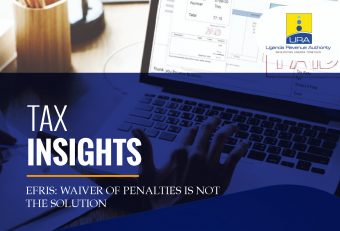Ben Rhaeim Aime Versus Granada Hotels (U) Ltd Labour Appeal No.002 of 2023 arising from Labour Dispute No.MGLSD/LC/520/2020.
Summary of the Court findings.
The Industrial Court has made a resounding decision by holding that an employee on a probationary contract is entitled to a fair hearing where he is dismissed on the grounds of misconduct or poor performance. The Court also clarified that where an employee is given a fixed-term contract which contains a probationary clause or has a probationary period to be served, such a contract should not be regarded as a probationary contract but a fixed-term employment contract with a probationary clause.
Factual background
Mr. Ben Rhaeim Aimen (Appellant in this matter) was employed by Granada Hotels (U) Ltd (hereinafter the Respondent), as a cost controller on a one-year term contract that contained a six-month probation clause. With his performance having proved unsatisfactory, according to the employer, he was terminated for poor performance.
He filed a claim with the Labour Officer who found that because there was a probationary clause in his one-year employment contract, he had a probationary contract with the Respondent with the effect being that he was lawfully terminated from employment even though there was no fair hearing. The Labour Officer held that he was not entitled to the reliefs he sought. The Appellant appealed to the Industrial Court which upheld his claim.
Detailed findings of the Court.
i. A fixed-term employment contract with a probationary clause/ period does not amount to a probationary contract.
The Industrial Court departed from the decision of the Labour Officer and the earlier decided cases of the Court and held that a probationary period or clause in a fixed term contract does not in any way amount to a probationary contract. It noted that a probationary contract is properly defined in Section 2 of the Employment Act and for it to be regarded as a probationary contract it must be a contract of not more than six months, in writing and should expressly state that it is for a probationary period.
It was the court’s view that the existence of a probationary period or clause in a contract of employment does not mean that the entire contract is for probation. Court therefore agreed with the earlier High Court decisions in the cases of Maudah Atuzarirwa Vs. Uganda Registration Services Bureau & others H.C.M.C No.249 of 2013 and Mark E. Kamanzi V National Drug Authority and Anor. H.C.M.A 138 of 2021.
This holding was a departure from the earlier Industrial Court decisions on the same subject matter in which the Court had previously held that where there is a probationary clause in a fixed-term contract then the probationary clause made it a probationary contract.
The Court expressed the rationale for probation as a trial period where both parties determine the suitability of working with the other and form a decision on whether to continue working or not and therefore a fixed term contract as the present one may have a probationary period or clause but this does not make such a contract a probationary contract.
The Court held that the Appellant at the time of his termination was serving a probationary period but was not on a probationary contract.
ii. An employee under a probationary contract is entitled to a fair hearing where he is dismissed on the grounds of misconduct or poor performance.
It was the holding of the Court that in all circumstances where an employer chooses to terminate an employee under a probationary contract on the ground of either misconduct or poor performance, then as required under Section 66 of the Employment Act a disciplinary hearing ought to be conducted and an employee granted a fair hearing.
Court took consideration of Section 67(1) of the Employment Act that clearly ousts the need for a fair hearing where the employee is still under probation and held that the overriding provision of the law is Article 44 (c) of the constitution which entrenches the non derogable and sacrosanct right to a fair hearing.
Legal Implications and Key Employment Law Practice Takeaways.
1. It’s important for an employer while hiring employees with the intention of having them serve a probationary period, to first give the employee a separate stand-alone probationary contract and after the expiry of the probationary period either provide a full-term employment contract (confirmation) or terminate the relationship by giving the requisite notice as agreed to in the probationary contract or as stipulated under the law.
2. When dismissing a probationary employee for either poor performance or misconduct there is a need to give the employee a fair hearing as such is a non derogable right under the Constitution.
3. This decision does not change the position of the law in relation to the termination of probationary contracts or fixed-term contracts with probationary periods if such termination is not based on performance or disciplinary-related grounds.
Caveat
The contents of this article are intended to convey general information only and not to provide legal advice or opinions. The contents of this website, and the posting and viewing of the information on this website, should not be construed as, and should not be relied upon for legal advice in any particular circumstance or fact situation. An Advocate/ attorney should be contacted for advice on specific factual legal issues.




